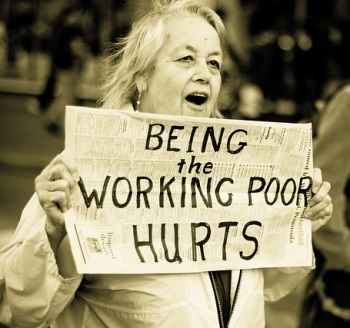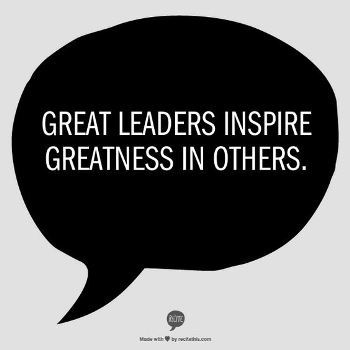Jeremie Averous's Blog, page 72
July 8, 2017
How to Improve Inner Resilience by Decoupling State from Context
Increasing our inner resilience is essential for well-being and happiness. In this excellent post ‘Resilience: De-Coupling State from Context‘, Doug Silsbee explains very well how to improve our inner resilience.
 The aim is to be less affected by external events and the automatic triggers these events create in our mind. Doug Silsbee proposes a 4 step decomposition:
The aim is to be less affected by external events and the automatic triggers these events create in our mind. Doug Silsbee proposes a 4 step decomposition:
Sense, and name, what is happening in your context.
Sense, and name, your own reactions to this context. Bear witness to how your identity is challenged, how you are taking on the stress of the system, how your thoughts are racing and shoulders hunched and attention span decreasing. Take a balcony view of our own experience.
Consciously direct your attention in order to interrupt the automaticity of your own nervous system’s response to triggering.
de-link your internal state from the context around you. This is liberation.
Of course this will take some practice and the author recommends regular meditation to increase self-awareness. Still we certainly need to practice these steps to improve our response to external events. When do you start?

July 6, 2017
How Each Civilization Bears the Seeds of Its Destruction Through Inequality Increase
Each civilization is characterized by a social organization and a specific elite. Following on our previous post ‘How Excessive Inequality Will Lead to Revolutions‘ and observation of the fall of previous civilizations and social organizations, a good question is if all societies do not spontaneously tend to increasing inequality – unless specific events or policies temporarily produce the opposite effect.
 Societies generally probably tend to become more rigid over time as the elite tries to protect its advantages. If not compelled by external events to compensate (such as drought, catastrophic event, war) or without a visionary leader at the helm that increases redistribution, this may inevitably over time lead to a revolutionary event.
Societies generally probably tend to become more rigid over time as the elite tries to protect its advantages. If not compelled by external events to compensate (such as drought, catastrophic event, war) or without a visionary leader at the helm that increases redistribution, this may inevitably over time lead to a revolutionary event.
That revolutionary event is generally triggered by an economic downturn such as a bad harvest or more recently, an economic depression.
The Fourth Revolution is happening, transforming our economies and our lives. Elites will also change as a result. Will that be sufficient to manage the transition as we observe a rise in inequality in developed countries?
July 4, 2017
How Excessive Inequality Will Lead to Revolutions
Cory Doctorow’s post ‘EXTREME WEALTH INEQUALITY WILL ALWAYS DEVOUR THE SOCIETIES THAT PRODUCE IT‘ and the associated longer piece ‘Shared Destinies: Why Wealth Inequality Matters‘ make an interesting point about a limit any society can accept in terms of inequality. They are worth reading.
 He argues that there has always been some threshold beyond which societies undergo a readjustment – either peacefully or through more violent revolutions. “The more unequal a society is, the more out-of-balance its policies will be.”
He argues that there has always been some threshold beyond which societies undergo a readjustment – either peacefully or through more violent revolutions. “The more unequal a society is, the more out-of-balance its policies will be.”
Of course inequality is on the rise now after a historic low in the mid-20th century. The question is whether we are getting close to that threshold (as populist successes would imply) and whether this threshold is changing with new technology. In any case this issue needs to be addressed in particular as the economy sputters and does not manage to bring along some part of the population.
July 1, 2017
How to Overcome The Critical Issue of the Working Poor in the Collaborative Age
New technology and the rise of the independent worker is a factor for creating “working poors” – people that work hard a substantial amount of their time but do not earn enough to support their families. This excellent post addresses the issue in an interesting manner: ‘Work please but poverty, no thanks: how can we avoid the rise in the working poor?‘.
 “The growth of new forms of self-employment provides an additional dimension to the in-work poverty challenge. In almost all countries, in-work poverty is higher among the self-employed. A recent study on self-employment showed that there is greater polarization in incomes for the self-employed than for employees.”
“The growth of new forms of self-employment provides an additional dimension to the in-work poverty challenge. In almost all countries, in-work poverty is higher among the self-employed. A recent study on self-employment showed that there is greater polarization in incomes for the self-employed than for employees.”
This is clearly a challenge that needs to be addressed and that our current employment system underestimates. On the other hand it was Henry Ford who spontaneously increase the wages in his factory to create the virtuous circle of the Industrial Revolution and the associated consumption and he did not need any regulatory incentives. How can we make the operators of the Collaborative Age that it is in their interest to guarantee minimum earnings for their contributors?
“In any case, it is vital not to underestimate the risk of allowing in-work poverty to continue unabated – when people feel that they are losing out despite playing by the rules, the risks to society extend beyond precariousness to decreased social cohesion and increased populism.“

June 29, 2017
How Facebook Makes Us Feel Bad
There is no doubt that social networks like Facebook become addictions because of the feelings they generate. The unfortunate thing is that it appears now proven that they make us feel bad, as explained in this serious Harvard Business Review paper ‘A New, More Rigorous Study Confirms: The More You Use Facebook, the Worse You Feel‘.
 The study was using statistics and does not explain what could be the probable cause of this conclusion. However personally I have a suspect, described in our post ‘Why Who We Are Is Not What We Post‘: what we see from other people on social networks is much more positive than real life (whereas in real life interaction, we get the full version or at least something closer thanks to the entire context).
The study was using statistics and does not explain what could be the probable cause of this conclusion. However personally I have a suspect, described in our post ‘Why Who We Are Is Not What We Post‘: what we see from other people on social networks is much more positive than real life (whereas in real life interaction, we get the full version or at least something closer thanks to the entire context).
Definite conclusion: keep those real life interactions running so that we do not believe all what our online network tells us… and let’s keep our positivity!

June 27, 2017
How to Overcome the Process Paradox
As mentioned in our previous post ‘Why It Is Important to Resist Process as a Proxy‘, too much process can be bad. But not enough process can be very bad as well and actually I spend a fair chunk of my time designing processes for clients that are desperately in need of them to take proper decisions and expedite them. There is really a paradox here: a set of processes is needed but it should not become an end by itself.
 One of the issues I observe in those organizations that have already processes is how they struggle to make them evolve over time. Sometimes, even projects supposed to revise the entire management system don’t produce any novelty. Actually, designing and then updating processes is tough (good for me and my company because that’s what we often do, but generally bad for organizations that don’t evolve quickly enough to respond to changes in their environment).
One of the issues I observe in those organizations that have already processes is how they struggle to make them evolve over time. Sometimes, even projects supposed to revise the entire management system don’t produce any novelty. Actually, designing and then updating processes is tough (good for me and my company because that’s what we often do, but generally bad for organizations that don’t evolve quickly enough to respond to changes in their environment).
Two key pointers to overcome this paradox:
Process should not remove the need for competence and experience. It is an Industrial Age illustion to believe that with the right process you can give the work to underpaid incompetent cogs workers.
It is absolutely essential to make the effort not only to develop but only to review and redesign much more often than organizations generally do the process they use.
Process are needed but they need to be understood and very often examined for suitability to the changes in environment and business. Review your processes more often and become more nimble!

June 24, 2017
Why It Is Important to Resist Process as a Proxy
Jeff Bezos’ latest letter to shareholders is quite short and worth reading (link here). The focus of the letter is how to avoid his organization to become complacent and go down. One particular point that captured my attention was about process as proxy to client relationship.
 “A common example is process as proxy. Good process serves you so you can serve customers. But if you’re not watchful, the process can become the thing. This can happen very easily in large organizations. The process becomes the proxy for the result you want. You stop looking at outcomes and just make sure you’re doing the process right. Gulp. It’s not that rare to hear a junior leader defend a bad outcome with something like, “Well, we followed the process.” A more experienced leader will use it as an opportunity to investigate and improve the process. The process is not the thing. It’s always worth asking, do we own the process or does the process own us?”
“A common example is process as proxy. Good process serves you so you can serve customers. But if you’re not watchful, the process can become the thing. This can happen very easily in large organizations. The process becomes the proxy for the result you want. You stop looking at outcomes and just make sure you’re doing the process right. Gulp. It’s not that rare to hear a junior leader defend a bad outcome with something like, “Well, we followed the process.” A more experienced leader will use it as an opportunity to investigate and improve the process. The process is not the thing. It’s always worth asking, do we own the process or does the process own us?”
And in the following of the letter Jeff Bezos makes also a few point about speed of decision which is for me also intrinsically linked to process or at least how quickly bureaucracy pervades organizations.
Process is not bad intrinsically but it can become bad if people satisfy themselves by following it (which is the essence of the bureaucratic organization). This is a neat reminder that we should keep in mind.

June 22, 2017
How Leadership is the Art of Creating Greatness in Other People
There are many good and less good definitions of leadership around. A good one is about how the leaders transforms those around him or her.
 Hugh McLeod of Gapingvoid writes: “It’s not a leader’s job to be great at whatever. It’s the leader’s job to make the people under him/her great at whatever.
Hugh McLeod of Gapingvoid writes: “It’s not a leader’s job to be great at whatever. It’s the leader’s job to make the people under him/her great at whatever.
Which is why, in old school Chinese martial arts, a master is not judged by how good his kung fu is, the master is judged by how good his/her students’ kung fu is.”
Well said! This should inspire us in our leadership practice to continuously focus on creating greatness around us.

June 20, 2017
How Professional Book Publishing Fact-Checking Remains an Illusion
When we buy a professionally published book we tend to believe that it has been more seriously fact-checked than a self-published book. But that is not quite the case as explained in this interesting paper ‘Gay Talese Isn’t Alone: Why Aren’t More Books Factchecked?‘.
 This must-read article narrates the story of an author seeking a thorough fact-checking of this book, after a few very public fiascos of the publishing industry. And he finds it very hard to do in a comprehensive manner.
This must-read article narrates the story of an author seeking a thorough fact-checking of this book, after a few very public fiascos of the publishing industry. And he finds it very hard to do in a comprehensive manner.
This is quite the same issue of accuracy of Wikipedia against traditional encyclopedia. Traditional encyclopedia are only checked by a limited number of people, which can introduce bias and limits the means available for thorough fact-checking. Wikipedia is as accurate, in a different way: less bias but also more smaller mistakes.
The conclusion of the experiment was clear: “Yet even with all these eyes, not just diligently looking and parsing the words of the book, but some specifically hired to find errors, we missed something.” Not something big, but inaccuracies are always likely to enter a book volume.
So don’t always believe that professionally published books are 100% accurate!

June 17, 2017
How To Keep Enough Seeds When Harvesting the Benefits of Our Ventures
Following on our previous post ‘How it is Important to Always Sow Seeds Rather Than Seek to Reap‘, let’s remember as well that farmers from ancestral times know that after a harvest it is essential to keep enough seeds for sowing the following year (otherwise famine threatens!).
 Similarly when eventually we are reaping the benefits from some enterprise, it is essential to keep some of that benefit aside to be able to sow again for the next cycle. That is something that some entrepreneurs and managers sometimes forget.
Similarly when eventually we are reaping the benefits from some enterprise, it is essential to keep some of that benefit aside to be able to sow again for the next cycle. That is something that some entrepreneurs and managers sometimes forget.
This requires some discipline. For example it is possible to determine a fixed ratio of reinvestment, or pre-agree on some new projects. In any case it is essential not to spend that resource on anything else than creating new seeds for the future.
Be wise. Always set aside enough for the next crop. And reinvest by sowing numerous seeds.




